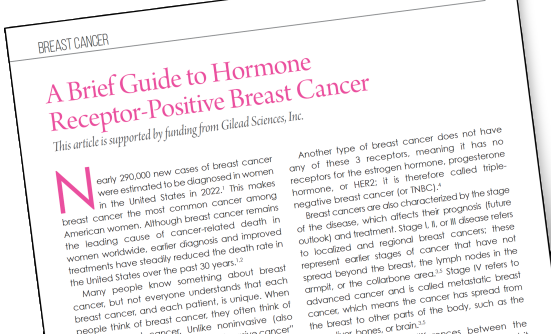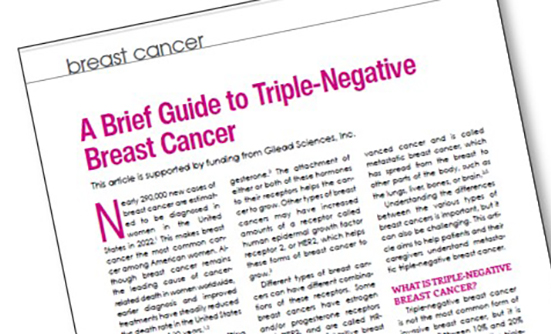On August 5, 2022, the FDA approved Enhertu (fam-trastuzumab deruxtecan-nxki; from Daiichi Sankyo), a HER2-directed antibody and topoisomerase inhibitor conjugate, for the treatment of adults with unresectable (can’t be removed by surgery) or metastatic (spreading) HER2-low breast cancer who have received chemotherapy in the metastatic setting or when the disease came back during or within 6 months of completing adjuvant chemotherapy.
And on October 4, 2022, the FDA approved the anti-HER2/neu (4B5) Rabbit Monoclonal Primary Antibody pathway to identify HER2-low expression in patients with metastatic breast cancer who may be candidates for Enhertu.

“Approximately half of all patients with breast cancer have tumors that are HER2-low, which have previously been classified as HER2-negative and have not had effective treatment options with HER2-targeted medicines,” said Shanu Modi, MD, Medical Oncologist, Memorial Sloan Kettering Cancer Center. “Based on the promising results of the DESTINY-Breast04 trial, clinicians are starting to differentiate levels of HER2 expression and redefine how metastatic breast cancer is classified.”
The approval of Enhertu was based on results of the randomized, multicenter DESTINY-Breast04 clinical trial of 557 patients with unresectable or metastatic HER2-low breast cancer, including 494 with hormone receptor (HR)-positive and 63 with HR-negative cancer.
The average time without disease progression in patients with HR-positive HER2-low breast cancer was 10.1 months with Enhertu compared with only 5.4 months with chemotherapy. The average time of survival without disease progression in the overall population was 9.9 months with Enhertu versus 5.1 months with chemotherapy.
Among the patients with HR-positive HER2-low breast cancer, the average overall survival was almost 2 years (23.9 months) with Enhertu versus 17.5 months with chemotherapy. In the overall patient population, the average duration of survival was again almost 2 years (23.4 months) with Enhertu compared with only 16.8 months with chemotherapy.
The most common side effects reported in 20% or more of patients using Enhertu in this study were nausea, fatigue, alopecia, vomiting, anemia, constipation, decreased appetite, diarrhea, and musculoskeletal pain.











